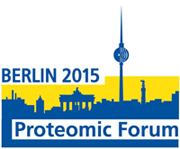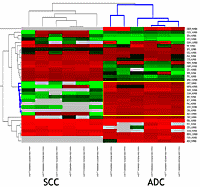|
To view this email as a web page, click here. |
 |
|
Welcome
High performance instruments can deliver low ppm accuracy for both precursors and fragments. We take a look at how this impacts database search.
This month's highlighted publication shows an interesting approach for elucidating enzyme pathways.
If you have a recent publication that you would like us to consider for an upcoming Newsletter, please
send us a PDF or a URL.
We will be hosting a symposium on Large Scale Proteomics at the upcoming Proteomic Forum 2015 in Berlin, March 22-25.
One presentation will describe how Mascot Insight can be used to manage, analyze and report large data sets.
Please have a read and feel free to contact us if you have any comments or questions. |
|
|
|
 |
 |
 |
|
The true benefit of high mass accuracy
Improvements in instrumentation in the last few years have been astonishing, and low ppm mass accuracy for precursors
is now widely available. High accuracy for MS/MS fragments is a more recent phenomenon, but can be expected to have an even greater
impact on the quality of database search results.
You might think that higher and higher accuracy should translate directly into higher and higher scores. This is not always
the case, as explained in this blog article.
Imagine a perfectly accurate instrument, where the errors are zero. Should this give us an astronomically high score?
Not necessarily, because mass error is only part of the picture. We still have to deal with
- peaks that are noise or cannot readily be matched
- failure of peptides to cleave between all residues
- mass ambiguity (I = L and D = deamidated N even with perfect mass accuracy)
- the possibility that the peptide sequence could have occured in the database by chance
This means that scores approach a limit as mass accuracy increases.
The most dramatic benefit of high accuracy for MS/MS fragments is improved discrimination.
The scores for the incorrect matches fall away because fewer peaks can match by chance.
To read about this in greater detail, click here. |
 |
 |
 |
 |
|
Featured publication using Mascot
Here we highlight a recent interesting and important publication that employs Mascot for protein identification, quantitation, or characterization. If you would like one of your papers highlighted here please send us a PDF or a URL.
|
|
|
Rapid Identification and Quantitative
Validation of a Caffeine-Degrading Pathway in Pseudomonas sp. CES
Chi Li Yu, Ryan M. Summers, Yalan Li, Sujit Kumar Mohanty, Mani Subramanian, and R. Marshall Pope
J. Proteome Res., 2015, Vol. 14(1), 95-106
With over 400 billion cups of coffee consumed each year, the environmental burden of the by-products is becoming a serious issue. This paper looks at microorganisms that can metabolize caffeine, potentially remediating some wastes, and uses proteomics methods to elucidate the enzyme pathways.
The authors performed quantitative comparisons of proteomes from bacteria grown in the absence and presence of caffeine using stable isotope dimethyl labeling and multiplexed LC-MS/MS assay. They discovered a number of caffeine-degrading enzymes in the CES strain with highly-induced capacity for caffeine degradation. The differences in the abundance of particular proteins were confirmed by reciprocal labeling experiments, and the role of the identified proteins in caffeine degradation was verified by genetic sequencing.
|
 |
 |
 |
 |
|
Large Scale Proteomics symposium at Proteomic Forum 2015
We are hosting a lunch-time symposium - Large Scale Proteomics - during the upcoming
Proteomic Forum 2015,
March 22-25 in Berlin, Germany. The event features two presentations and is open to registered attendees.
- Analysis of the human proteome in proteomicsDB, Bernhard Kuster, Technische Universitaet Muenchen
- Reporting complex quantitation data sets using Mascot Insight, Patrick Emery, Matrix Science Ltd.
Places are limited, so early registration is advisable.
Mascot Insight helps you organise and report Mascot search and quantitation results.
More than 30 standard reports are available, as described in
this presentation, and custom reports can be created.
If you would like to know more about Mascot Insight, but can't attend this meeting, there is an
Overview on our web site. |

 |
 |
 |
 |
|
About Matrix Science
Matrix Science is a provider of bioinformatics tools to proteomics researchers and scientists, enabling the rapid, confident identification and quantitation of proteins. Mascot software products fully support data from mass spectrometry instruments made by AB Sciex, Agilent, Bruker, Shimadzu, Thermo Scientific, and Waters.
Please contact us or one of our marketing partners for more information on how you can power your proteomics with Mascot.
|
 |
 |
|
|